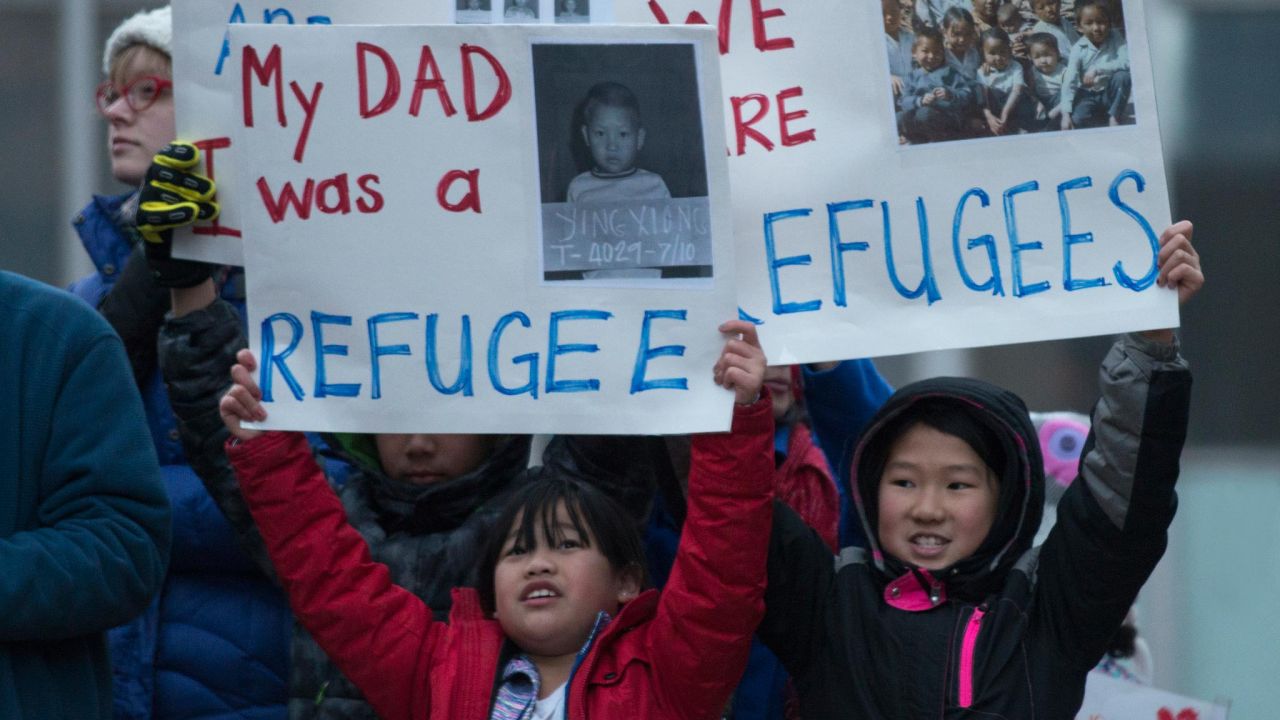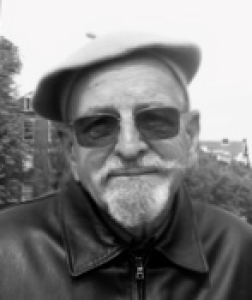
Two young girls were among the approximately 7,000 protesters who gathered in downtown Minneapolis on Jan. 31, 2017 to denounce President Trump and express solidarity with immigrants. (Photo by Fibonacci Blue/ flickr CC 2.0)
Last week I described how I have often encountered America’s positive people — those I know, as well as complete strangers who have gone out of their way to be gracious and helpful. This week I want to widen that observation and describe how many Americans welcome and support countless others to their homes, cities, churches and hearts. Why? Perhaps they remember that a generation or two ago their forebears arrived at Ellis Island undocumented. Or perhaps they are compelled by the deep roots of their religious faith.
These days we are witnessing the bitter vituperation of an ignorant president who continues to sow fear and suspicion, who has accused Mexico of sending across our border rapists and drug dealers whom he plans to keep out by constructing an impenetrable wall.
This fearmongering has not gone unnoticed or unchallenged. Across the nation hundreds of communities large and small have declared themselves to be “sanctuary cities.” While no one seems certain as to what that implies, at a minimum it is an indication that when the reds come to seize someone the government has decided to deport, the transfer will be resisted.
In addition, churches all across the nation are now willing to open their buildings to those who are no longer safe from the threat of deportation. According to The Los Angeles Times, these congregations now number in the hundreds.
Historically, churches have been safe havens where fugitives could seek temporary protection. In Anglo-Saxon England, churches and churchyards generally provided 40 days of immunity, and neither the sheriff nor the army would enter them to seize the supposed outlaw. But gradually the right of sanctuary was eroded. In 1486, sanctuary for the crime of treason was disallowed, and sanctuary for most other crimes was severely restricted by Henry VIII. This right was later abolished.
In the 1980s many US churches provided sanctuary for political refugees from Central America. A member of our community was convicted of participating in a religious body that offered refuge during those troubling years.
When President Trump declared that we should prioritize Christian refugees, and followed it with a prohibition against anyone coming here from several Muslim countries, a blanket of fear descended on every mosque and Muslim community. There’s a Muslim religious school a few blocks from where I live. Concerned about their children’s safety after Trump signed the ban, parents were hesitant to send them to class lest they be harassed on the way. When a threatening letter was sent to the school, a nearby Christian congregation dispatched volunteers every morning when the children were due to arrive and every afternoon when they were to return home, to make sure they were OK.
When President Trump suggested the possibility of assembling a Muslim registry in this country, scores of Christians said they’d go to the registration sites and declare themselves Muslims.
This state of affairs does not reflect the America I love and to which my grandfather, Peter Bayer, came from Germany after World War I. The United States has now become an enclave for frightened people who are controlled to the extent they internalize Trump’s hateful rhetoric. Thankfully, there are enough good people around who accept as fellow citizens those who are different — even if they do not personally know them.
The sanctuary movement is only the latest sign that at heart we are a gracious people who care deeply about each other and a world of others — added to the list that includes the underground railroad, the end of slavery and segregation, the civil rights revolution, care of the elderly through Social Security and Medicare, women’s suffrage, gay rights, WIC (the program for women, infants and children) and the effort to guarantee health insurance to every American.
We must not be ruled by fear or kept in line by how this administration defines the “outsiders” we are supposed to hate. If this drive toward fascism is what it means to make America great again, then greatness has been badly defined. It is not greatness to which Trump is pointing us, but a narrow sectarian nationalism that may end the greatest experiment in democracy the world has ever known.




